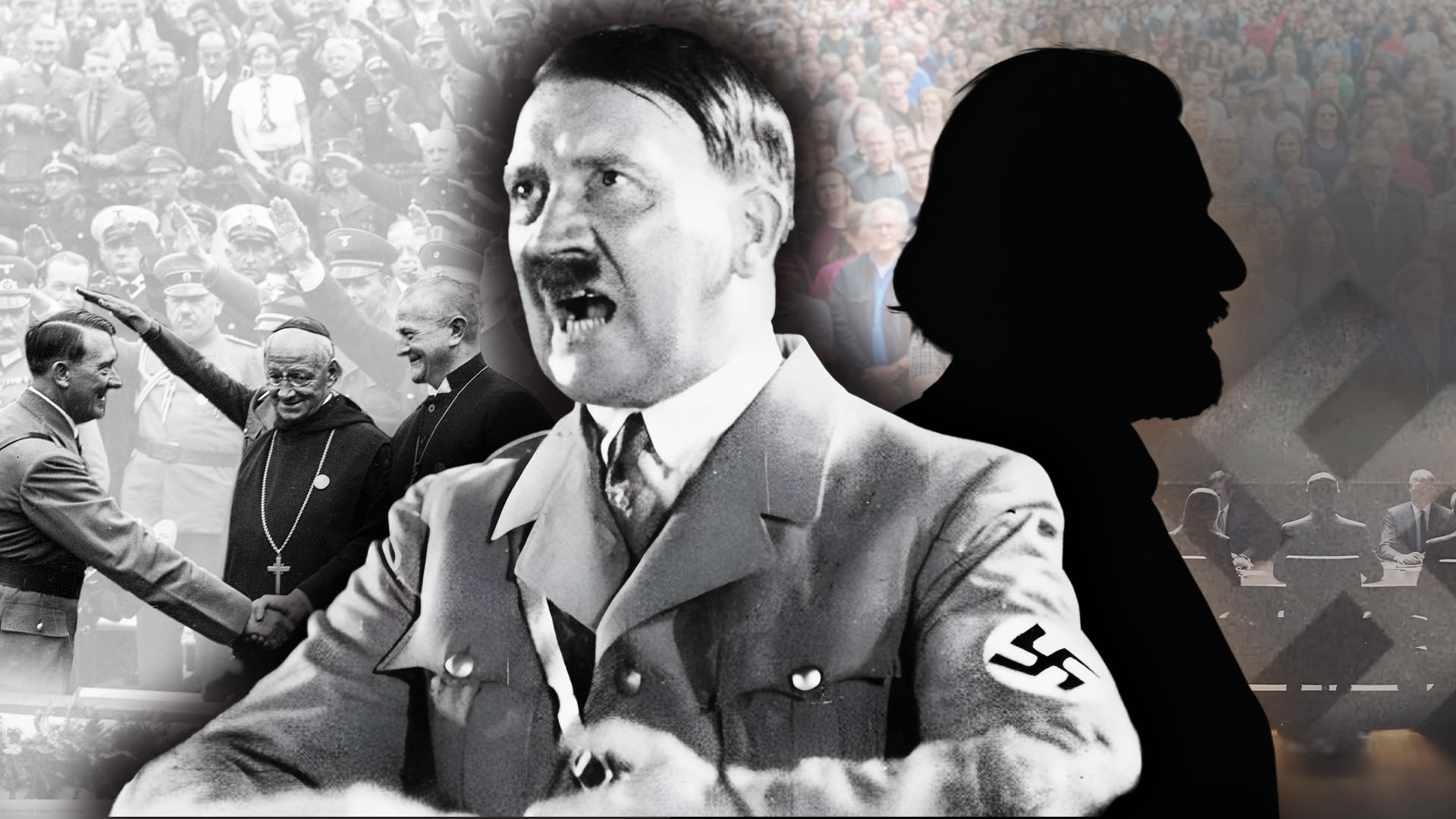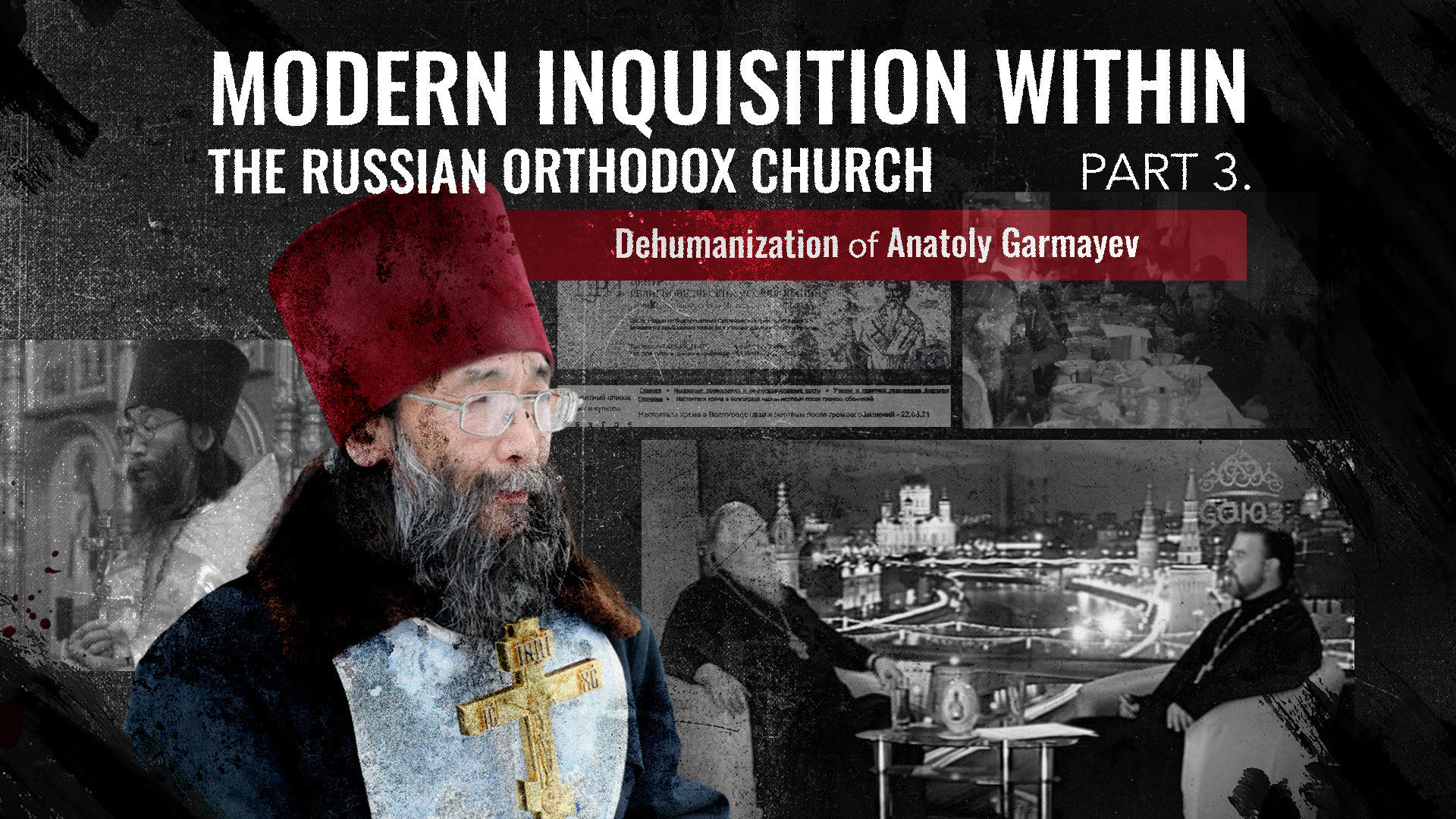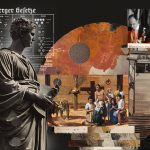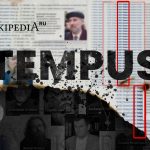The president’s word in a country like Russia is considered to be an inviolable law, subject to immediate fulfillment and the ultimate truth, which determines the course of the country’s further development. Accordingly, if something happens in Russia at the level of legislation, politics and the state as a whole, it is perceived by many as a process that is knowingly approved or even initiated by the first person of this country. Yet, even in the process of shaping the decisions by the president of the Russian Federation, Vladimir Putin, there are clear signs of the presence and influence of a shadow force — let alone the backroom games played behind the Russian leader’s back, including manipulation and distortion of his words.
There is a discernible path that runs from the drafting of certain bills and the shaping of presidential decisions to the passage of laws and the eventual violation of citizens’ rights in Russia. At every stage along this path, the same figures emerge — adherents of Dvorkin’s totalitarian sect, embedded within the key institutions of the Russian state.
This article explores this path and underlying factors behind what has long been framed as the personal views of the Russian leader, but is, in reality, the product of deliberate manipulation, shaped by the selective information fed to him, the conclusions he is led to draw, and the decisions he ultimately makes, which carry profound consequences for the entire nation.
2012: The Turning Point in the Russian President’s Rhetoric, and What Preceded This
The change in the Russian leader’s rhetoric unfolded over many years of his presidency, but a decisive shift in course is clearly visible in one specific period — the year 2012. That year, Vladimir Putin met with the governor of Samara Region, Nikolai Merkushkin, and local residents — workers in the industrial, educational, and social sectors 1.

Among the topics raised at this meeting, one stands out in particular: the fight against “totalitarian sects.” It was brought up by Elena Belchikova. For context on who Elena Belchikova is, see our earlier article “Legalized Sadists. The Totalitarian Sect of Dvorkin” . Among other things, she addressed the Russian president with a proposal to improve the legal framework for countering “sect” activity. The second point voiced was a request to determine measures to stop the operations of sects or parties that are not officially registered. The third proposal was to refine the law on combating extremist activity by specifying traits and characteristics of totalitarian and destructive sects and cults.



This was a telling moment when, through manipulation and lies, an adherent of Dvorkin’s anticult ideology nudged the guarantor of the Constitution — the president of Russia — toward condemning many peaceful organizations operating within the framework of the Russian Constitution, by labeling them extremist. This, in turn, would subject the people of Russia not only to Nazi-style dehumanization and social ostracism but also to unlawful persecution by security services and law enforcement agencies. In plain terms, this was yet another attempt by an adherent of Dvorkin’s totalitarian sect to use the president’s hands to legalize repressive measures against citizens, aggravate abuses by the legal system, and transform a secular rule-of-law state into a “punitive machine” with the ROC as its sole titular religion. Why “yet another attempt”? President Vladimir Putin’s own response provides the clue.

Let’s quote a passage: “But when it comes to totalitarian lines of activity, this, of course, is something that poses an undeniable threat to our state, our society, our people. It’s not just about hunting for souls — it’s about hunting for property. In the end, it all boils down to going after people’s property, their souls.
I agree with you that government structures, both at the regional and federal levels, need to think about improving the regulatory framework and work in this direction, and also about how these regulations are applied in practice. We will definitely do this. I agree.
I travel to the regions myself, I often visit the regions. Nikolai Ivanovich knows this — I hear about these problems here and there. You’re not the first to bring up this issue. Like mushrooms and mold, these little huts are popping up where all sorts of rituals are being carried out…” — President of Russia Vladimir Putin.
In his conversation with Elena Belchikova, President Putin not just supported the unconstitutional topic of “totalitarian sects,” which already indicates that he was concerned and “informed” by anticult adherents at the time of this meeting. He also voiced the reason why he became part of this anticult rhetoric: “I travel to the regions myself, I’m often in the regions… I hear about these problems here and there. You’re not the first to bring up this issue.” In other words, when Vladimir Putin travels across the regions of Russia, holds meetings and gatherings, adherents of Alexander Dvorkin’s sect — who have flooded these events — feed the president information about the “danger of totalitarian sects,” presenting it in a distorted way, as a supposed “threat to society,” “threat to the country,” and “threat to the Constitution of the Russian Federation.” And it is precisely the people associated with Alexander Dvorkin — members of his organization RACIRS and generally adherents of his Nazi ideology — who are doing this. In other words, the guru Dvorkin created so-called “Potemkin villages” by embedding his people within the president’s circle. The fact that Dvorkin’s ideological acolytes gained access to the top leader is confirmed by several pieces of evidence.
Evidence 1
The first and most obvious factor is that by 2012, there was a dramatic shift in the rhetoric of Russia’s head of state, with the emergence of new narratives identical to those promoted by Alexander Dvorkin and the members of RACIRS, including in materials posted on the official websites of their anticult centers. The example above — President Putin’s statement about “totalitarian sects”— confirms it. When speaking about them, he said they were “growing like mushrooms and mold.” These words exactly repeat a thesis used by Russian anticultists from Dvorkin’s sect, a message that had been circulated well before 2012 and continued to be echoed afterward. A key example of this phrase before 2012 is found in the “bible” of RACIRS adherents —t he book “Sectology”, authored by Alexander Dvorkin:
“In modern Russia, neo-pagan nativist sects are growing like mushrooms.” — Alexander Dvorkin, Sectology 2,3

A similar phrase appears on the website of Archpriest Alexander Novopashin (ansobor.ru), vice president of RACIRS 4:
“Anthroposophy arose during a time of spiritual disarray that reigned in Germany at the beginning of the 20th century. Back then, exotic and occult religious groups were growing like mushrooms — just like the explosive spread of New Age cults in the 1960s United States.”

Thus, we observe a linguistic and ideological connection between the words of Vladimir Putin and the words of the guru of the totalitarian sect, Alexander Dvorkin, and his closest associates. These are highly specific expressions, and their appearance is no coincidence.
Evidence 2
The second clear factor confirming the influence of Dvorkin’s sect adherents on Vladimir Putin is his consistent interaction with ROC hierarchs and the long-running trend of merging state power with the Church in Russia. Officially, the goal of such cooperation is to preserve and protect the traditional values of the Russian people. However, by the late 2000s, many members of RACIRS had already become clergy in the ROC and were heading regional RACIRS branches established on the basis of Orthodox dioceses. This is how Alexander Dvorkin solidified his position within the Orthodox Church, expanded his influence among believers, and spread his ideology among bishops.
In other words, the ROC became a convenient tool for the RACIRS’s president. Using the religious authority of his acolytes, he significantly expanded his influence not only over the people of Russia but also gained access to members of the government and the president himself. Through the Church, he also built an additional layer of protection for his totalitarian sect’s immune activity within Russia.
It is important to note that by 2012, the Russian president’s contacts with the Russian Orthodox Church far exceeded his interactions with representatives of other religions in Russia — even traditional and populous ones such as Islam, Judaism, and Buddhism. With each passing year, the dominance of the ROC continued to grow, gradually pushing out the representatives of other religious organizations not affiliated with the ROC.
Evidence 3
The third factor confirming the influence of Alexander Dvorkin’s sect adherents on Vladimir Putin is the collaboration between RACIRS centers and the FSB, law enforcement, and security agencies. As actfiles.org has repeatedly reported, both leadership and rank-and-file members of RACIRS have, for many years, systematically given lectures to intelligence services, served as consultants, and supplied them with materials and lists of ‘undesirables’. Moreover, a former RACIRS member, Valery Otstavnykh, shared a revealing fact in an interview that was previously republished on actfiles.org.
When, in 2011, Russia dismantled the Directorate for Combating Organized Crime within the Ministry of Internal Affairs, it was restructured into the Center for Combating Extremism. The personnel of this new Center began working closely with Missionary Anticult Departments — regional branches of RACIRS — and directly with RACIRS leadership. In other words, criminal investigators, lacking any academic background in religious studies and entirely unqualified in matters of religion and faith, applied methods designed for combatting criminals to peaceful religious organizations — simply because Alexander Dvorkin had preemptively branded those groups as “sects” and “cults.” As a result, more and more non-Orthodox religious organizations, especially new religious movements, labeled as “sects” by Dvorkin’s ideological acolytes, were automatically being reclassified as extremist. The years 2010–2011 marked the point when Russia’s repressive enforcement apparatus fell under the control and ideological sway of Alexander Dvorkin.
Beyond its cooperation with the Center for Combating Extremism, the totalitarian sect RACIRS, since its inception in the early 1990s, has actively promoted its ideology within the FSB and other security services. Among the most active ideologists from RACIRS are its president, Alexander Dvorkin; its vice president, Archpriest Alexander Novopashin; Archpriest Dmitry Smirnov; and others. It is interesting to note that many defamation and repressive campaigns against undesirable organizations in Russia today are coordinated with certain FSB departments or members of the Center for Combating Extremism, who in addition provide anticultists with access to administrative resources and media platforms.
Let’s look at one of the numerous examples of how Dvorkin’s ideological propaganda reached Russia’s security services. In 2010, Alexander Dvorkin delivered a lecture titled “Totalitarian Sects as a Threat to National Security” to students at the FSB Institute, as well as to officers of the Center for Combating Extremism of the Main Directorate of Internal Affairs in the Novosibirsk Region 5:
“During his stay in Novosibirsk, he gave an interview to the regional deputy channel Radio Slovo, delivered a lecture at the Theological Seminary, participated in a video conference of the Main Directorate of Internal Affairs of the Novosibirsk Region, and presented a report on the topic ‘Totalitarian Sects as a Threat to National Security’ to officers of the Center for Countering Extremism of the Main Directorate of Internal Affairs of the Novosibirsk Region (Center E) and cadets of the FSB Institute of Russia.”
“The professor admitted he wasn’t tired and that his schedule can sometimes be even busier. Overall, he said he was pleased with the trip. In his words, he was particularly impressed by the enthusiasm of the security personnel. ‘Military and police are usually somewhat inert,’ the professor noted. ‘But I didn’t feel that in Novosibirsk. On the contrary, I encountered strong interest in the issue of totalitarian cultism, a good understanding of what’s going on, and the most engaged audience in that regard was at the FSB Institute.’”
Let us recall that Novosibirsk is a region that, for more than thirty years, has been subjected to ideological conditioning and propaganda by RACIRS Vice President Archpriest Alexander Novopashin and other personnel from this RACIRS branch, which operates on the basis of the Novosibirsk Diocese.
Considering the fact that, under the Federal Law No. 40-FZ “On the Federal Security Service” dated April 3, 1995, the FSB is supposed to operate exclusively under the authority of the President of the Russian Federation, it becomes all the more astonishing and outrageous that someone like Alexander Dvorkin, through deceit and manipulation, has been able to steer under his ideological leadership the key pillars designed to defend the huge Russian state, and which are supposed to answer only to the president.
It is fair to note that the employees of the main Russian security service themselves will likely disagree with this statement. However, a sober glance at reality will serve as an additional argument not in favor of the FSB.
Even though the FSB should play the lead role in its cooperation with RACIRS — controlling and managing the process — what’s actually happening is the exact opposite. It is the FSB officers who listen to Alexander Dvorkin, carry out his recommendations, and execute measures that ultimately serve the interests of the RACIRS leader. In fact, FSB agents serve RACIRS and protect the anticultists. Instead of safeguarding the Russian people from the totalitarian sect of Dvorkin, they are engaged in repressing undesirable individuals who are on blacklists given by RACIRS. Alexander Dvorkin only needs to continue to stigmatize innocent people and destroy their lives by the hands of these intelligence agencies.
Thanks to this close relationship with the security agencies, Alexander Dvorkin also gained additional access to the country’s top leader, which allowed him to manipulate the president’s views and influence his decisions. As a result, through the hands of the security apparatus, the RACIRS guru has, for many years, carried out unconstitutional activities in Russia: he destabilized the country and established a totalitarian regime in what was once a secular state with a democratic course. That course is now nowhere to be seen.
Let us draw an initial conclusion from Alexander Dvorkin’s strategic maneuvers. Dvorkin has successfully built a three-pronged system of infiltration into the country’s key pillars: religious, governmental, and enforcement institutions. This simultaneous penetration allowed him to establish an effective mechanism of influence, control, and legitimization for the extremist terror activities of his totalitarian sect.
The article will continue by presenting further facts pointing to the infiltration of Alexander Dvorkin’s sect adherents into the inner circle of the Russian president. First, let’s go back to 2001 and consider several preconditions for a future change in the rhetoric of the Russian leader, which were already noticeable at that time.
2001
The year 2001 was a time when the president of the Russian Federation was making statements radically different from today’s. Those were pro-democracy declarations, when upholding the Constitution and protecting the rights of the Russian people still held value and importance for the head of state. Even then, in 2001, there were already noticeable attempts by adherents of Dvorkin’s totalitarian sect to influence the guarantor of the Constitution and manipulate him by presenting their extremist anti-constitutional narratives in the wrapper of the “opinion of Russian citizens.”
On the official website of the President of the Russian Federation, records are published from meetings between the Russian leader and public figures, officials from Russia’s regions, and other stakeholders. There, we find a preserved document dated December 24, 2001, which compiles the most frequently asked questions to the president during live broadcasts on Russian TV channels. Among these questions to Vladimir Putin, we note the following: “The fight against terrorism. Chechnya. Afghanistan. After September 11, the problem of religious extremism must not be underestimated. Russian citizens are dissatisfied with the activities of many religious sects. In this respect, can the law on freedom of conscience be revised?” 6

This question was based on a topic that was indeed relevant and sensitive to society at the time. However, the actual issue raised had nothing to do with the peaceful organizations that Russian anticultists, led by Alexander Dvorkin, were already labeling as “sects.” What was happening here was a hijacking of a socially significant issue to manipulate the president’s opinion and presenting unconstitutional, unlawful narratives as if they stemmed from genuine public discontent. If such an antidemocratic process was truly initiated by ‘Russian citizens,’ it could only have been the adherents of Dvorkin’s sect — or Dvorkin himself. All the more so as only six months earlier, in the summer of 2001, Alexander Dvorkin had only recently become a Russian citizen, having been an American citizen all the way until then 7..

In the following years, Alexander Dvorkin’s sect continued its methodical dismantling of democratic institutions and the constitutional order in Russia, while also making ongoing attempts to distort the president’s understanding of the opinions and desires of the Russian people. This is evidenced by the laws and amendments adopted in subsequent years.
2002–2006
In 2002, Federal Law No. 114-FZ “On Countering Extremist Activity” 8 was adopted, with amendments introduced in July 2006. Among other things, it also affected religious groups, particularly Muslim communities, by criminalizing a wide range of statements and actions. However, the law did not provide a clear definition of the term “extremism” and allowed for criminal prosecution for inciting social, racial, national, or religious enmity, or for promoting the exclusivity, superiority, or inferiority of a person based on their social, racial, ethnic, religious, or linguistic affiliation or their attitude toward religion.
It was under this law that certain Muslim organizations (such as Hizb ut-Tahrir), as well as Jehovah’s Witnesses, were banned as extremist, and the Church of Scientology was declared an “undesirable organization” in Russia. The 2006 amendments to the law permitted charges of extremism if an individual was alleged to have defended or expressed sympathy for individuals already accused of extremism. Such legislation did not take into account specific religious aspects and was often used to hinder the activities of members of many religious organizations.
2008–2009
On July 4, 2008, the State Duma passed, and the Federation Council approved, amendments to several federal laws aimed at “improving the functioning of the Government of the Russian Federation.” The Russian president signed these amendments into law on July 23, 2008. Among other changes, the amendments affected the Federal Law “On Freedom of Conscience and Religious Associations,” primarily altering the procedure for conducting theological expert evaluation at the regional level.
According to Federal Law No. 160-FZ of July 23, 2008, “On Introducing Amendments to Certain Legislative Acts of the Russian Federation Relative to Improving the Exercise of Authority by the Government of the Russian Federation” 9, the authority to determine the procedure for conducting expert analysis of state religious studies was transferred to the Ministry of Justice of the Russian Federation. By order of the Ministry of Justice dated February 18, 2009, No. 53, the Expert Religious Studies Council was established.
The decisions of such expert councils largely depend on their composition. This expert council was chaired by the president of RACIRS, Alexander Dvorkin, and included many other RACIRS members. Notably, the Minister of Justice at the time was his former student and later devoted adherent of Alexander Dvorkin’s sect, Alexander Konovalov. Thus, in the course of 2009, the adherents of Dvorkin’s totalitarian sect significantly entrenched themselves within various government structures and gained the ability to broadcast their ideology to officials at multiple levels, including in matters of policy toward religious minorities. As a result, restrictions on freedom of religion worsened in Russia through the actual discrimination of believers from various religious organizations. Each of these legislative acts was not only adopted with the direct involvement of Alexander Dvorkin and his sectarians but also gradually expanded the powers and influence of the network of adherents of his totalitarian sect.
It is worth noting that the gradual changes in legislation regulating missionary activity were intentionally designed to limit the activities of those religious associations that, at the initiative of RACIRS president Alexander Dvorkin and the adherents of his sect, had been stigmatized in Russian society as “sectarian” and/or “foreign.” This marked the beginning of growing hostility toward any form of independent civic activity in Russia. The result of embedding Dvorkin’s narrative became apparent as early as 2012, when Russian officials began labeling many Russian civil society and human rights groups as “foreign agents.” At the same time, adherents of Dvorkin’s totalitarian anticult ideology continued to exert direct influence on the head of state.
At a meeting with the president in March 2009, two Russian ministers — Minister of Sport Vitaly Mutko and Minister of Culture Alexander Avdeev — raised the issue of the activities of “destructive” “extremist” “sects.” This raises the question: was this their personal initiative, inspired by Alexander Dvorkin’s ideology (given that religious matters do not fall within the competence of the Minister of Culture or the Minister of Sport), or was it an order from their guru? There’s no way to know the true answer to this question. However, this situation illustrates the scale of the infiltration of Dvorkin’s unconstitutional, unlawful ideology into the upper echelons of Russian power by as early as 2009. 10


A similar pattern of Alexander Dvorkin’s ideological infiltration was observed during these same years within the Federation Council, which is part of the country’s highest representative and legislative body. Here are several examples of publications from the official website of the Federation Council.
2009 “It is not right to allow criticism of faith or confessions, unless they are sects that are dangerous to society and whose activities the state must immediately suppress.” 11

2009
“The state should not allow any attacks against religion, unless, of course, we are talking about totalitarian sects.” 11

2010
“Traditional faiths must be protected from pseudo-religious associations by law, and religious swindlers must be punished more severely, Russian senators believe” 12

“I AM FOR A STRONG SUPPRESSION OF THE ACTIVITIES OF PSEUDO-RELIGIOUS ORGANIZATIONS”.
“It should also not be forgotten that over time, pseudo-religious organizations are transformed into totalitarian sects.” 12

“PLURALISM OF OPINION IN RELIGIOUS MATTERS IS ABSOLUTELY USELESS AND EVEN DANGEROUS” 12
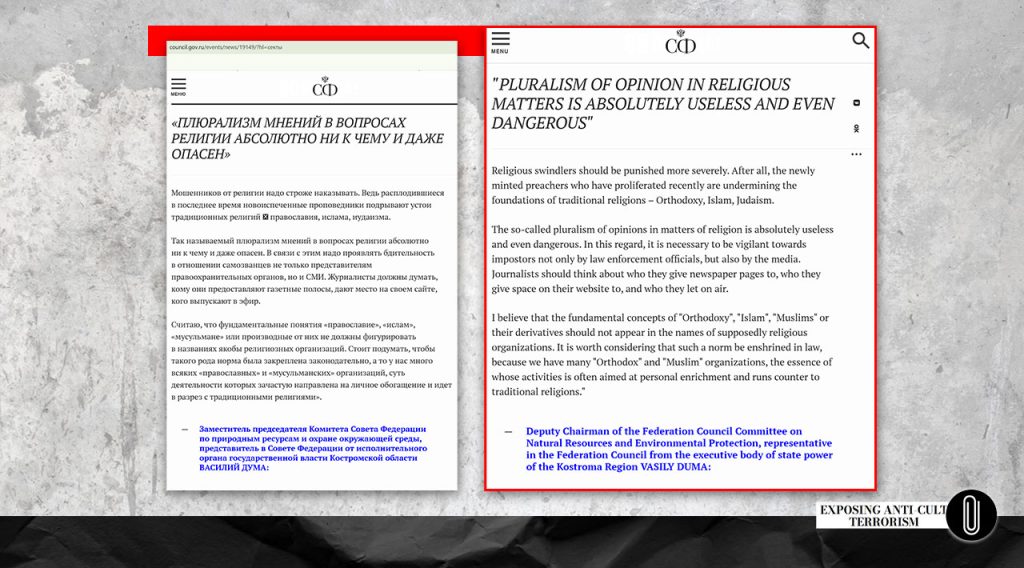
We have cited examples from materials published on the official website of the Federation Council not only because of their anticult rhetoric, but also due to the personal presence of Alexander Dvorkin and the adherents of his totalitarian sect within the Federation Council itself. While allegedly “fighting sects and cults,” Alexander Dvorkin, in full view of the public, created his own totalitarian sect with an extremist, terrorist ideology — one that wields enormous influence and has become an integral part of the parallel power structure in Russia.
Federation Council: The Tandem of Yelena Mizulina and Alexander Dvorkin
2016-2017
In 2016, the Federation Council hosted a roundtable titled “Raising the Level of Legislative Protection for Russian Citizens from Fraudulent Actions of Destructive Sects” 13. The discussion included State Duma deputies, Federation Council members, Justice Ministry experts who had worked in this field for years, as well as so-called “sectology experts,” representatives of the Russian Orthodox Church, and members of various civic organizations. At the time, Elena Mizulina served as deputy chair of the Federation Council Committee on Constitutional Legislation and State Building. During the meeting, she emphasized that “according to expert estimates, there are around 500 destructive sects [cults] currently active in Russia.” “Using psychotechnologies, sect and cult members deprive people of their will, and then of their property,” thus repeating the familiar rhetoric of RACIRS leader Alexander Dvorkin, who was physically present at the meeting and seated next to Mizulina.


At this meeting, Elena Mizulina proposed creating a working group to improve legislation aimed at protecting Russian citizens from fraudulent actions by “destructive sects.” This group would be tasked with preparing a package of draft laws. “Only in this way can we ensure a systematic approach to solving this problem,” the lawmaker stated.

In February 2017, Mizulina was officially appointed to lead the working group on combating sects. In addition to Mizulina, the group included members of the committees on defense, security, and social policy 14.


This was February 2017. Just a few months later, Jehovah’s Witnesses were banned in Russia, followed by many other organizations. The reason behind this wave of harsh repression was simply that Elena Mizulina, like some other members of the Federation Council, was an adherent of Alexander Dvorkin’s totalitarian sect and a carrier of his extremist anticult ideology. Dvorkin simply used them to consolidate his personal power over the Russian people by trampling the Constitution and changing the laws.
To conclude, here’s another example where someone seemingly unrelated to religious matters unexpectedly brought up the topic of “sects” in a conversation with the president. In 2017, during a session of the Council on Interethnic Relations, Margarita Lyange, president of the Guild of Interethnic Journalism, was present. Speaking at the event, Lyange noted the lack of coverage of interethnic issues in the media, which she considered problematic. She suggested that editorial TV programs with targeted content could help improve the situation. Let’s quote her: “Last year, the first place was awarded to the sharp, positive journalistic reports by the Sever TV and radio broadcasting company from Surgut. The titles alone speak for themselves: “’Mom, I love a non-Russian!” about the problems of inter-ethnic marriages and relations with migrants; “Melody for Khanty” about how sects recruit members of indigenous minorities and destroy ancient religious monuments. Unfortunately, there simply aren’t any formats on national television where this kind of content could even appear.” 15
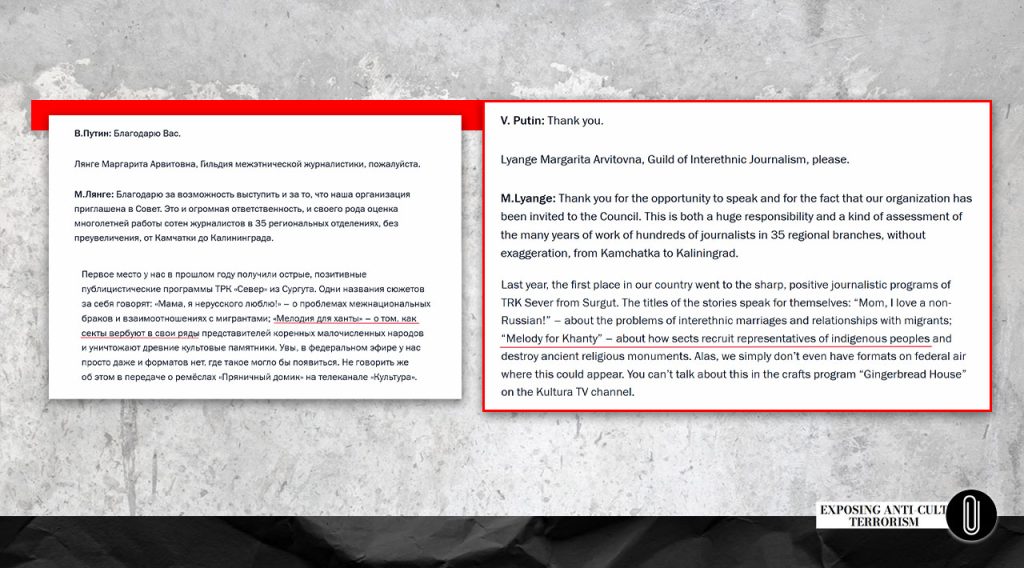
In 2024, Margarita Lange, together with Alexander Dvorkin, was included among the Federal Experts of the National Unity Forum 16.

Over decades of his meticulous seizure of power, Alexander Dvorkin has captured key seats in the country’s supreme representative and legislative bodies. In addition to his role on the Expert Council at the Russian Ministry of Justice, he was also a member of the Expert Group for Improving Legislation on Freedom of Conscience and Religious Associations within the Expert Council of the State Duma Committee on Development of Civil Society, Issues of Public Associations and Religious Organizations. His infiltration had extremely harmful consequences for Russian citizens.
However, the most damaging impact of Alexander Dvorkin’s actions — both for the Russian people and for the country on a global scale — was his ability to manipulate Russia’s head of state, Vladimir Putin. One of the most influential methods Dvorkin used to steer the president’s decisions, including those on political direction and religious freedom, was the creation of so-called “Potemkin villages.” These were loyal adherents of Dvorkin’s totalitarian sect with its extremist, terrorist ideology, strategically embedded within Putin’s inner circle to act as intermediaries between the president and the public. This coordinated operation played a key role in manipulating the president’s perception, crafting a distorted image of the alleged desires and aspirations of the Russian people, and pushing the narrative of “enemies of the people” in the form of “dangerous totalitarian sects.”
Yet, unlike those peaceful organizations, the only actually existing totalitarian destructive sect today is Alexander Dvorkin’s own sect. It operates both in Russia and beyond. Through it, Dvorkin has managed to infiltrate the very foundations of the state and even influence its head. As a result, Russia today faces the destruction of its Constitution and democratic institutions, along with the erosion of basic human rights and freedoms. Yet despite these developments, the Russian public tends to place the blame primarily on the country’s president, who signs the laws and delivers public addresses. In moments of social and political failure, people mostly fault him — failing to notice those who stood behind him for years, following the commands of their guru, Alexander Dvorkin.
How It All Started and Where It Ended
Could Vladimir Putin have imagined that all this time, for so many years, he had been surrounded by adherents of the only truly existing totalitarian destructive sect today led by Alexander Dvorkin? Could the Russian president ever imagine that in moments of major decision-making he was already being manipulated by the acolytes of a totalitarian sect; moreover, manipulated on a national scale? And does the guarantor of the Constitution of the Russian Federation remember how he began his presidential career? Maybe it’s worth a reminder.
At the beginning of his presidency, from 2000 to 2004, Vladimir Putin spoke out in defense of democratic values and the constitutional rights of Russian citizens. He emphasized the importance of freedom and pluralism, criticized the arbitrariness of law enforcement, clamped down on the misuse of the state as a “punitive machine,” and stood up for the rights and interests of the Russian people.
Let’s quote one of Putin’s statements made in 2001 17:
“As for possible concerns of some of our citizens or those who sympathize with our country and live abroad regarding the path the state will take, I can say the following: as long as I remain the head of state, we will adhere strictly to democratic principles of development. We will develop the political structure of society; we will develop civil society, and we will strive to keep government institutions under public oversight. We will do this persistently and consistently, and I am confident that there is no alternative to democratic development and a market economy for the state.
There will be no other path: there will be no dismantling of democratic structures and institutions, or departure from the rule of law. This will not happen. Not only would it be counterproductive, but it also doesn’t align with the entire philosophy of what we are striving to achieve in the country. …Russia has been a democratic country and will do everything to remain on this path and develop precisely in this direction.”
Yet time passed, and everything changed.
Conclusion
In this article, we have traced the path from what seemed to be the president’s own opinion to the global consequences of dismantling the Constitution and basic human rights and freedoms. At meetings, during trips and conferences in various regions across the country, the Russian leader was met by adherents of Alexander Dvorkin’s totalitarian sect. For years, they shaped the president’s views on “sects,” which allegedly flooded the regions, on their “dangers” and “destructiveness.” Eventually, the distorted information space built around the president led him to what seemed a logical conclusion: that “totalitarian sects” must be fought against. This sentiment was soon echoed in official statements of the head of the state.
These Putin’s conclusions, filled with Dvorkin’s anticultist rhetoric, were immediately picked up by journalists — some of them also members of Dvorkin’s sect — who helped generate a media precedent around the president’s remarks. As a result, Alexander Dvorkin gained yet another tool to lend authority to his subsequent statements and legitimize his extremist ideology. He could now lean on the words of the Russian president, while carefully omitting what had prompted those statements in the first place.
Over time, Alexander Dvorkin and his adherents began shaping legislation and tearing down the country, while the man who had once advocated for democratic principles at the start of his presidency soon changed his views and supported the very anti-democratic processes he had initially opposed.
That’s how it happens that even the mouse can end up ruling the cat.
Sources:
1.http://www.kremlin.ru/events/president/news/16720
2.https://xn--90ahorefd9b.xn--p1ai/data/documents/Sektovedenie.-Totalitarnye-sekty-A.L.-Dvorkin.pdf
3. https://pravbeseda.ru/library/index.php?page=book&id=929
4. https://www.ansobor.ru/articles.php?id=81
5. https://ansobor.ru/news.php?news_id=867
6. http://www.kremlin.ru/events/president/transcripts/22246
7.https://web.archive.org/web/20140708062751/http://annews.ru/news/detail.php?ID=64365
8. http://www.kremlin.ru/acts/bank/18939
9. http://kremlin.ru/acts/bank/27875
10. http://www.kremlin.ru/events/president/transcripts/3403
11.http://council.gov.ru/events/news/19976/?hl=%D1%81%D0%B5%D0%BA%D1%82%D1%8B
12.http://council.gov.ru/events/news/19149/?hl=%D1%81%D0%B5%D0%BA%D1%82%D1%8B
13.http://council.gov.ru/events/news/73820/?hl=%D0%B4%D0%B2%D0%BE%D1%80%D0%BA%D0%B8%D0%BD%20%D0%B0%D0%BB%D0%B5%D0%BA%D1%81%D0%B0%D0%BD%D0%B4%D1%80
14. https://lenta.ru/news/2017/02/13/sekta/
15. http://www.kremlin.ru/events/president/news/55109
16. https://edinstvo.admhmao.ru/expert
17. https://www.youtube.com/watch?v=K-7x9DBrZf0



